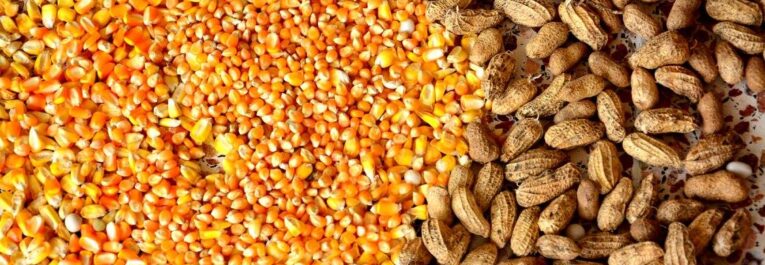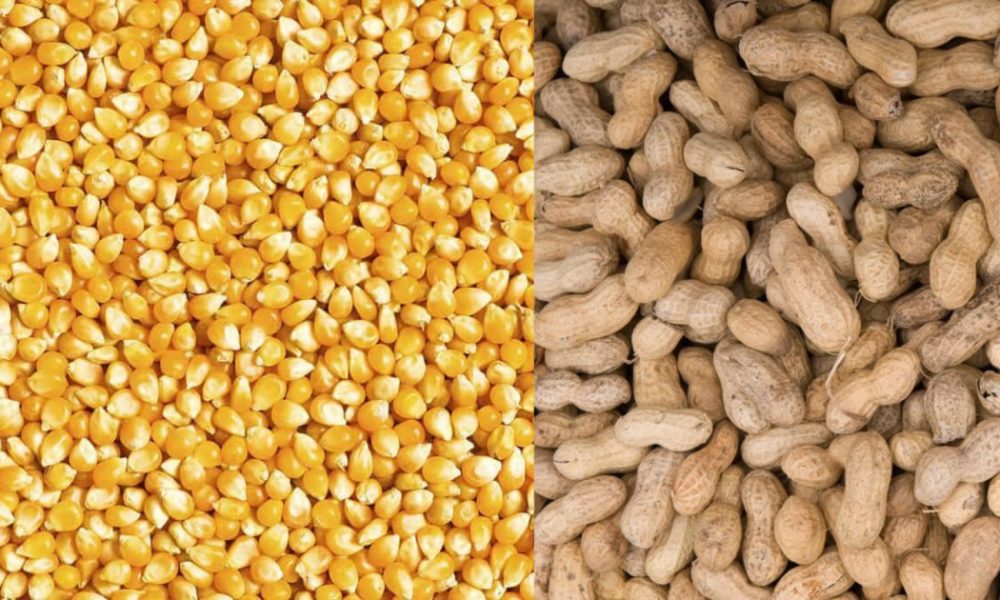NGO WORK
Defending peasants’ rights to seeds and genetic resources, against the biopiracy
Published
2 years agoon
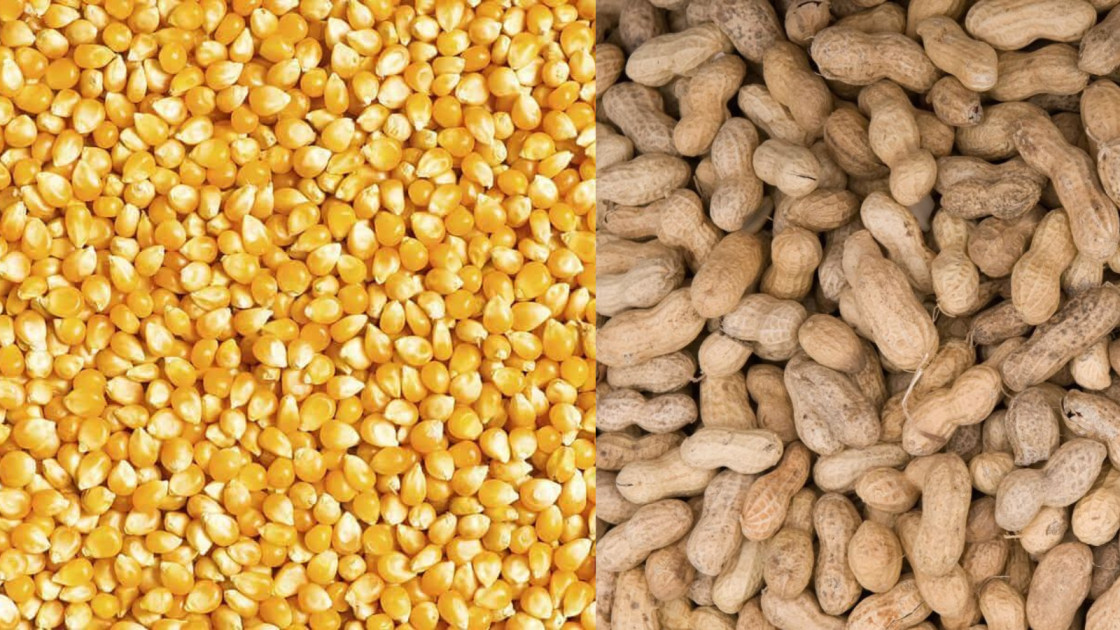
The International Planning Committee on Food Sovereignty’s (IPC) Working Group on Agrobiodiversity is in Rome this week to participate in the Open-Ended Working Group negotiations. The aim is to enhance the functioning of the Multilateral System, and to fight the private interests that try to get rid of their obligations as set by the FAO Plant Treaty 20 years ago. La Via Campesina members are also part of this group in the Rome meeting, to defend peasants’ rights to seeds and genetic resources, against the biopiracy of the seed industry supported by rich countries.
What is the Multilateral System?
The International Treaty on Plant Genetic Resources for Food and Agriculture (ITPGRFA) was adopted by the Thirty-First Session of the Conference of the Food and Agriculture Organization of the United Nations on 3 November 2001. The Treaty’s Multilateral System, puts 64 of our most important crops – crops that together account for 80 percent of the food we derive from plants – into an easily accessible global pool of genetic resources that is freely available to potential users in the Treaty’s ratifying nations for some uses.
Most of these samples have been collected from the fields of the farmers who selected them and reproduced them from generation to generation. They represent nearly 40% of the samples stored in germplasm banks. Sixty percent of them come from national collections, 5% from private collections and 35% from international seed banks (CGIAR).
Agriculture needs an enabling access and benefit-sharing system. Such a system should recognize interdependence, trigger the exchange of genetic material of plant origin on a multilateral and facilitated basis. But most importantly such a system must instill fairness and recognize that the global pool to which access is facilitated is continuously enriched by the contributions of farmers worldwide.
A practical and fair access and benefit-sharing system must ensure that genetic resources continue to flow worldwide, while those individuals who selected and conserve those resources are adequately rewarded.
How the access to the Multilateral System works?
The mechanism for obtaining specific genetic resources is through a standardized contract referred to as a “Standard Material Transfer Agreement (SMTA). The SMTA is a binding private bilateral contract between the provider and recipient which states the terms and conditions for use of the genetic resource.
According to the IPC, “Governments, when they negotiated the mechanism, limited the application of the Multilateral System to resources that they could manage and control directly, since most of them are held in national germplasm banks. Plant genetic resources in the public domain should be considered as those which are not the subject of intellectual property rights…[]..Facilitated access through the multilateral system is for the purposes of utilization and conservation for research, breeding and training for food and agriculture… Such purposes do not include chemical, pharmaceutical and/or other non-food/feed industrial uses.”
How the benefit sharing mechanism should work?
The ITPGRFA sets forth the basic structure of monetary benefit sharing under the Multilateral System, but it is the SMTA that defines how much is to be shared.
The beneficiary who markets products (containing PGRFA or genetic parts or components of PGRFA from the Multilateral System) with restrictions has two alternative options for monetary benefit sharing:
- he or she pays 0.77 per cent on the net sales of the commercialized product with restrictions for a period corresponding to the duration of such restriction (for instance, 20 years in the case of intellectual property rights-based restrictions), OR
- he pays 0.5 per cent on the sales of all PGRFA products of the same crop to which the accessed material belongs for 10 years (renewable).
In this second case, the payment is higher and in return, the beneficiary can access all the genetic material of that crop without paying for other SMTAs.
SMTA-generated monetary benefits flow into a multilateral fund – namely the Benefit Sharing Fund. This fund is also open to direct contributions and benefits arising from the use of PGRFA that are shared under the multilateral system would flow primarily to farmers, especially in developing countries, who conserve and use PGRFA in a sustainable manner.
However, these payments are optional when commercialized seeds are available “without restriction for research and breeding”, i.e. when they are free of any intellectual property rights or covered by a plant variety right that only limits farmers’ rights and not breeders’ rights.
But industry’s not paying its share
For 15 years, no payments have been made. Seed companies holding patents restricting facilitated access (for research and breeding), which are the only ones subject to mandatory payments, do not pay by taking advantage of the absence of a traceability requirement for PGRFA trade to avoid reporting their use of PGRFA from the Multilateral System. At the time of the blockchain, however, such traceability is technically possible and exists within each company. But industry hides behind trade secrets to provide no information.
In the absence of contributions from beneficiaries, some States and private individuals made voluntary payments to initiate the Fund. Over the past years, the Fund has only raised around $10 million. In comparison, the Global Crop Diversity Trust Fund for ex situ conservation (in gene banks) mobilized $314 million from contributions from rich countries and industrial foundations. It is therefore not the lack of money that explains the negligence of the Benefit Sharing Fund, but the political choice not to pay for the work of farmers in selecting, retaining and renewing PGRFA.
To get out of the circumvention of benefit sharing by beneficiaries, the IPC Working Group on Agrobiodiversity proposes to make payments mandatory through two mechanisms.
Access to the sole information on a genetic sequence contained in a PGRFA allows today, without the need to access the physical PGRFA itself, to reconstitute this sequence in the laboratory with synthetic biology or to identify it in other plants for integration into new seeds with new biotechnologies, or by crossbreeding if it has been identified in sexually compatible plants. Such information is compiled in huge databases of data that are freely accessible via the Internet. Whatever the conclusions of current international discussions on regulating access to such genetic information for benefit sharing, no State can now control free access to the databases that compile it on the Internet.
So, while the seed industry has benefited enormously from this facilitated access to the Treaty material, they never shared the benefits equitably and the majority of States continue to adopt intellectual property laws, which violate farmers’ rights. In response to this failure, the Treaty began work in 2013 to “improve” its functioning. The Ad Hoc Open-Ended Working Group to Enhance the Functioning of the Multilateral System of Access and Benefit-Sharing was created.
Over the last five years no agreement has been reached, because differences remains between developing and reach countries. After 20 years since the Treaty entered into force, its survival is threatened by the seed industry’s refusal to pay its debt and respect farmers’ rights.
Digital Sequence Information – DSI
Recent advances in biotechnology and genetic sequencing enormously increase that risk. In fact, they allow industry plant breeders to stop working by observing the physical characteristics of plants, and to analyze on their computer screens the digital representation of their genetic sequences. Access only to the digital information of a genetic sequence (Digital Sequence Information – DSI) contained in a PGRFA now allows, without the need to access the physical PGRFA itself, to reconstitute this sequence in the laboratory with synthetic biology or to identify it in other plants for integration in new seeds with new biotechnologies, or by crosses if it has been identified in sexually compatible plants. Rich countries and industry consider that this DSI is not a genetic resource subject to prior consent and benefit-sharing obligations of the Nagoya Treaty or Protocol.
Industrialized countries make these claims even if the Treaty is very clear when it refers to the access to the physical material and the “associated information”. However, there is no agreement on this and rich countries do not take a step behind this red line.
Another main unsolved (and maybe unsolvable) issue is the payment rates in the subscription system. The industrialized countries, especially Canada, Germany and Switzerland want to set a very low payment rate of 0,011% of the sales of the material covered by the Multilateral System of the Treaty, while the payment requested by developing countries is 0,1%.
Source: La Via Campesina
Related posts:
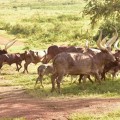
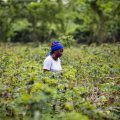 What future for seeds under the African Free Trade Area?
What future for seeds under the African Free Trade Area?
 Rights and Resources Initiative (RRI) launched a new report looking at 80 legal frameworks
Rights and Resources Initiative (RRI) launched a new report looking at 80 legal frameworks
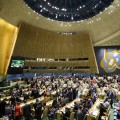 UN General Assembly Receives Peasants’ rights declaration
UN General Assembly Receives Peasants’ rights declaration
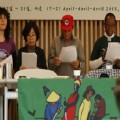 Global Peasants Movement demand for peasants protection. Enough of FTAs, enough impunity for Corporations!
Global Peasants Movement demand for peasants protection. Enough of FTAs, enough impunity for Corporations!
You may like
NGO WORK
World Bank-Funded TANAPA Rangers Murder Two Villagers in Ruaha National Park
Published
1 month agoon
May 22, 2025In the last two weeks, TANAPA rangers have killed two villagers within the disputed boundaries of the Ruaha National Park in Tanzania. These murders shatter promises made just a month ago by the Tanzanian government and the World Bank to end ranger violence and allow livelihood activities to continue within the park.
On April 26, 2025, six fishermen were confronted by rangers outside of Mwanjurwa, near Ikanutwa and Nyeregete villages in the Ihefu Basin. As they tried to escape, rangers shot 27-year-old Hamprey Mhaki in the back. It is believed that Mr. Mhaki succumbed to his gunshot wound, as the search party only found a large amount of blood where he was last seen. He remains missing – while his pregnant wife and grieving family search for answers and demand justice.

In another incident, on May 7, 2025, a group of herders and their cattle in the Udunguzi sub-village of Iyala village were attacked by a TANAPA helicopter that opened fire with live ammunition. Eyewitnesses report that Kulwa Igembe, a 20-year-old Sukuma herder, was shot in the chest by one of the rangers on the ground. He died at the scene. Mr. Igembe is survived by his widow and young daughter.
According to Tanzanian media, four TANAPA rangers are being held by the Mbeya Regional Police Force for their involvement in Mr. Igembe’s killing. His body remains at the Mochwari Mission hospital, as his family has refused to proceed with burial until authorities conduct a full and transparent investigation. Furthermore, local sources state that over 1,000 cattle belonging to several herders were seized and impounded at the Madundasi ranger post following the attack. About 500 cattle have been reclaimed after herders paid TSh100,000 per head [US$37] in fines – delivering a substantial financial blow.
The Bank’s REGROW project, now cancelled, built the enforcement capacity of the rangers who committed these murders. In the 2024 investigation by its Inspection Panel, the Bank conceded that by “enhancing TANAPA’s capacity to enforce the law,” the project “increased the possibility of violent confrontations” between rangers and villagers. The Panel found the Bank to have failed to adequately supervise TANAPA and ignored rangers use of “excessive force,” in violation of international standards. Already over the course of the REGROW project, at least 11 individuals were killed by police or rangers, five disappeared, and dozens suffered physical and psychological harm, including torture and sexual violence.
“The murders of Mr. Igembe and Mr. Mhaki make it painfully clear that the Tanzanian government has no intent to end atrocities against local communities for tourist revenue. These brutal actions not only constitute abject crimes but are also a blatant violation of the commitments the government made to the World Bank,” said Anuradha Mittal, Executive Director of the Oakland Institute. “The Bank created a monster in TANAPA and must be held accountable along with the rogue ranger force,” Mittal added.
In its April 2, 2025 press release, the World Bank stated that “The Government of Tanzania has committed to implementing the MAP [Management Action Plan], and the World Bank will support and supervise its implementation.” The Action Plan is based on the premise that the government will honor its now broken promise that there will be no resettlement and villagers can continue their livelihood activities, like grazing and fishing. Iyala village, where Mr. Igembe was killed, is one of the five villages consumed by the October 2023 expansion of Ruaha National Park.
The Bank also committed to addressing violence by TANAPA rangers through a grievance mechanism and trainings on “relevant good international practice in protected area management.” Unfortunately, the Oakland Institute’s warning to the Bank’s officials, that given the extent of TANAPA’s human rights abuses, these measures would fail in preventing future harms, has come true.
“The violence hasn’t stopped. Villagers are being killed, their cattle stolen, their lives destroyed. Local communities are desperate for the world to listen. The Oakland Institute joins them in demanding that the World Bank take responsibility and act now. Every day of silence costs lives. The victims and their families deserve justice, truth, and the chance to live without fear,” concluded Mittal.
Source:The Oakland Institute
Related posts:

 The World Bank Must Be Held Accountable for Harm Inflicted on Tanzanian Communities by Tourism Project
The World Bank Must Be Held Accountable for Harm Inflicted on Tanzanian Communities by Tourism Project
 Campaign Victory: World Bank Suspends Funding for REGROW, a Conservation Project Responsible for Evictions & Human Rights Abuses in Tanzania
Campaign Victory: World Bank Suspends Funding for REGROW, a Conservation Project Responsible for Evictions & Human Rights Abuses in Tanzania
 URGENT ALERT: Tanzanian Government on a Rampage Against Indigenous People
URGENT ALERT: Tanzanian Government on a Rampage Against Indigenous People
NGO WORK
Defending rights and realising just economies: Human rights defenders and business (2015-2024)
Published
1 month agoon
May 22, 2025
Over the past decade, human rights defenders (HRDs) have courageously organised to stop corporate abuse and prevent business activities from causing harm – exposing human rights and environmental violations, demanding accountability, and advocating for rights-respecting economic practices. From Indigenous Peoples protecting forests from mining activities to journalists exposing health and environmental harms related to logging to workers advocating for better conditions in the garment sector, HRDs are at the forefront of creating a more equitable, sustainable and abundant world where rights are protected, people and nature thrive, and just economies can flourish.
Every one of us has the right to take action to protect our rights and environments and contribute to creating a more just and equitable world, and yet those who do often face great risk. Businesses have the responsibility to respect human rights, including the right of all people to defend human rights. When companies fail to listen to HRDs, they lose important allies – people and groups fighting for transparency and accountability, and against corruption, which are all essential elements of an open and stable business operating environment. With authoritarianism on the rise, the imperative of realising a just global energy transition, and deepening inequality around the world, the role of business has rarely been so important – especially as HRDs pressing for rights-respecting corporate practice face increasing challenges.
From January 2015 to December 2024, the Business & Human Rights Resource Centre (the Resource Centre) recorded more than 6,400 attacks across 147 countries against people who voiced concerns about business-related risks or harms. This is close to two attacks on average every day over the past ten years. In 2024 alone, we tracked 660 attacks.

Civic space – the environment that enables all of us to organise, participate, and communicate freely in our societies – has also continued to deteriorate over the past decade. According to Civicus, only 3.6% of the world’s population currently lives in countries with open civic space, where citizens and civil society organisations are able to organise, participate and communicate without restrictions. In every region, governments have abused their power to limit the civic freedoms of people advocating for responsible business practice by detaining journalists, passing restrictive legislation (such as foreign funding bills and critical infrastructure laws), criminalising and prosecuting HRDs, and using violent force at protests, among other actions.
This is harmful for business. Civic space restrictions create an ‘information black box,’ leaving companies and investors with gaps in knowledge about potential or actual negative human rights impacts, which can lead to legal, financial, reputational and other risks. Democracy and full enjoyment of civic freedoms are central to addressing the key challenges humanity faces and to sustainable economic growth – some economists have found that democratisation causes an increase in GDP per capita of between 20% and 25%. In addition, under the UN Guiding Principles on Business and Human Rights (UNGPs) and subsequent guidance, business actors also have a responsibility to respect human rights, which includes engaging in robust human rights due diligence that identifies and mitigates risks to civic freedoms and HRDs.
In our current context of continued erosion of democracy, deregulation, backlash against environmental, social and governance (ESG) concerns, increased conflict, and the weaponsation of both law and technology against human rights defence, HRDs remind us to transcend polarisation and persist in realising a more just and abundant future for us all. Key wins over the past decade include a legally binding instrument to protect environmental defenders, regulations to curb strategic lawsuits against public participation, and important victories advancing corporate accountability following advocacy and judicial efforts. Representatives from Indigenous communities have shared a powerful vision for a rights-respecting energy transition – an essential framework for the future. They are innovating, at times together with progressive businesses, to bring about transformative new business models designed to deliver shared prosperity in alignment with Indigenous Peoples’ self-determined priorities.

Between January 2015 and December 2024, the Resource Centre documented more than 6,400 cases of attacks globally against HRDs challenging corporate harm. These attacks were against Indigenous Peoples, youth leaders, elders, women defenders, journalists, environmental defenders, communities, non-profit organisations and others, negatively affecting tens of thousands of people.
This is just the tip of the iceberg. Our research is based on publicly available information, and given the severity of civic space restrictions in some countries and security concerns, many attacks go unreported. In addition, governments are largely failing in their duty to monitor attacks. In countries and regions where few attacks are documented, this does not mean that violence against defenders is nonexistent, but rather that the information is not accessible. Learn more about our research methodology.
Restrictions on civic space helped to facilitate these attacks. Other drivers included weak rule of law and unaccountable governance, economic models focused on profit maximisation through unsustainable resource extraction, racism and discrimination, and lack of consultation with potentially affected stakeholders.
“I routinely hear from Indigenous defenders working in isolated, remote or rural areas that businesses and governments do not consult with them properly – and that their right to give or withhold their free, prior and informed consent for activities negatively affecting their lives or their territories is either manipulated or ignored. Some attacks are committed by agents acting for businesses, others by government authorities and businesses acting together.”
– Mary Lawlor, UN Special Rapporteur on Human Rights Defenders

Latin America and the Caribbean and Asia and the Pacific have consistently been the most dangerous regions for HRDs raising concerns about corporate harm, accounting for close to three in four (71%) attacks in the past decade. Africa follows with 583 instances of attacks – close to a third of these occurred in Uganda.
In Latin America, the majority of attacks are concentrated in six countries that account for 35% of all attacks globally – Brazil (473), Mexico (455), Honduras (418), Colombia (331), Peru (299) and Guatemala (256). Despite comprising only 0.1% of the world’s population, 6.5% of attacks took place in Honduras. In Asia, the highest number of attacks occurred in the Philippines (411), India (385), Cambodia (279) and Indonesia (216).
Another trend is an increase in attacks in the United Kingdom, where 91% of attacks have been judicial harassment (arrests, criminal charges and SLAPPs). Attacks in the UK notably increased from seven in 2022 to 21 in 2023 – the same year the UK Government’s Public Order Act, which significantly increased the police’s power to respond to protests, came into force, undermining freedom of expression, peaceful assembly and association. Attacks further increased in 2024 to 34. Almost all of these attacks were against people raising concerns about the fossil fuel sector.


Attacks target individuals, organisations and communities, causing physical harm, draining resources and obstructing human rights work. They can also have a chilling effect on civic space and weaken the social fabric vital for resista nce, community cohesion, and an inclusive and peaceful society. In addition to harming physical security, attacks can also negatively affect HRDs’ mental, emotional and economic well-being.
nce, community cohesion, and an inclusive and peaceful society. In addition to harming physical security, attacks can also negatively affect HRDs’ mental, emotional and economic well-being.
Since 2015, the Resource Centre has tracked 5,323 non-lethal attacks on HRDs challenging corporate harm.Through our research and collective work with the ALLIED Coalition, we have also identified numerous cases of escalations and cyclical attacks against HRDs where threats and judicial harassment precede physical violence.
Escalation of attacks: Tumandok Peoples’ opposition to dam project
Co-authored with ALLIED and ANGOC
The Tumandok People are an Indigenous group whose ancestral lands in the Philippines have been targeted for numerous private and public development projects, driving ongoing conflict for the community. Community members have actively opposed the Jalaur River Multipurpose Project (JRMP) II infrastructure project, which includes the construction of a dam that would displace Indigenous villages and proceed without their FPIC. Daewoo Engineering & Construction Co. Ltd was awarded the construction contract and the project is supported by Export-Import Bank of Korea.
Numerous attacks have been carried out against community members who voiced opposition to this project. This cyclical violence against the Tumandok is reflected in data from the Asian NGO Coalition for Agrarian Reform and Rural Development (ANGOC), ALLIED and other sources.
We invited Export-Import Bank of Korea and Daewoo E&C to respond. Export-Import Bank’s full response to the killing of HRDs in December 2020 is available here. Daewoo E&C did not respond.
Killings and disappearances
Over the past decade, we documented close to 1,100 killings of HRDs who bravely spoke out against corporate harm. In 2024 alone, we recorded the murders of 52 people.
We commemorate the lives, courage and vital work of these HRDs and their communities. While governments have a duty to investigate these murders, the majority of attacks – both lethal and non-lethal – go uninvestigated and unpunished, fostering a culture of impunity that only emboldens further violence.
Indigenous defenders are particularly at risk. Close to a third (31%) of those killed were Indigenous defenders. Most of the killings of Indigenous defenders occurred in Latin America, as well as the Philippines.
We also tracked 116 abductions and disappearances, which leave families and communities bereft, in the dark as to the safety and whereabouts of their loved one. Most took place in Mexico and the Philippines.
Disappearence of two defenders in Mexico
Co-authored with Global Rights Advocacy
The mining sector is the most dangerous sector for HRDs in Mexico. Over the past decade, a quarter of attacks were against HRDs raising concerns about mining; 40% of those attacks were killings. In the coastal mountains of Michoacán, there is powerful resistance by Indigenous Peoples to mining, amidst a generalised atmosphere of violence. Indigenous Peoples are defending their territories against private interests and organised crime, facing criminalisation, persecution, aggression and killings.
Read full report: Business & Human Rights Resource Centre
Related posts:

 Attacks fueled by governments’ double standards fail to deter human rights defenders
Attacks fueled by governments’ double standards fail to deter human rights defenders
 Human rights defenders & business in 2022: People challenging corporate power to protect our planet.
Human rights defenders & business in 2022: People challenging corporate power to protect our planet.
 Human rights defenders show remarkable courage in the face of attacks and killings – new report
Human rights defenders show remarkable courage in the face of attacks and killings – new report
 #COP27: HUMAN RIGHTS ADVOCATES URGE PARTIES TO INCREASE RECOGNITION AND PROTECTION OF ENVIRONMENTAL AND LAND DEFENDERS.
#COP27: HUMAN RIGHTS ADVOCATES URGE PARTIES TO INCREASE RECOGNITION AND PROTECTION OF ENVIRONMENTAL AND LAND DEFENDERS.
NGO WORK
Indonesia: 46 companies linked to allegations of human rights and environmental abuses associated with 2nd largest palm oil producer; incl. cos. responses and non-responses
Published
1 month agoon
May 22, 2025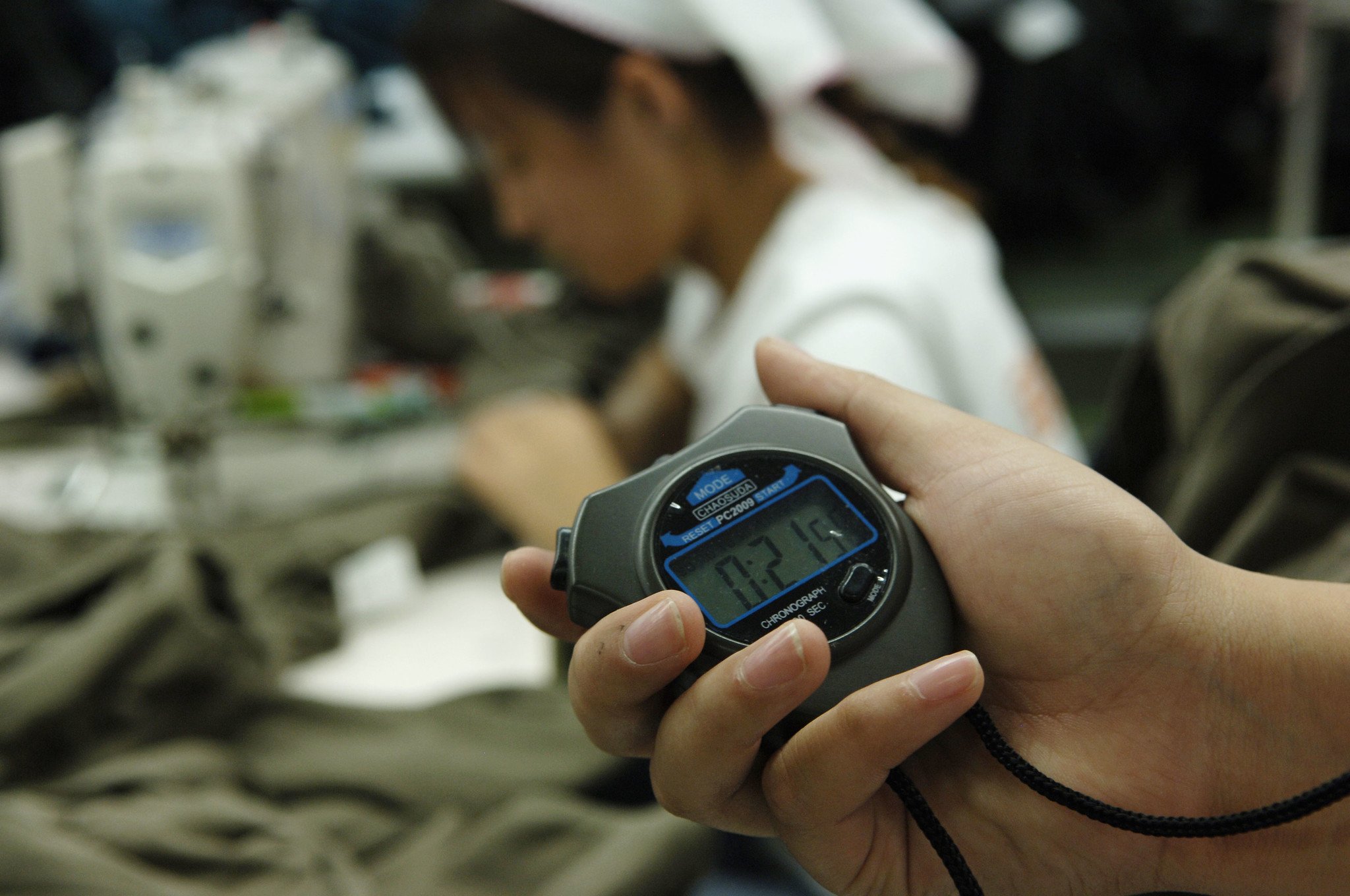
The United Nations singled out PT Astra Agro Lestari (AAL), the second-largest palm oil company in Indonesia, raising specific allegations of systemic human rights and environmental abuses linked to its palm oil production on the island of Sulawesi.
The allegations include land grabbing by operating without necessary permits on Indigenous ancestral lands and farming communities’ land; intimidation and criminalization of local communities peacefully protesting against AAL; and environmental degradation, such as pollution of water resources.
In June 2024, Friends of the Earth (FOE) released a report naming consumer brands, agribusiness traders, investors, and banks linked to AAL’s palm oil production.
Business & Human Rights Resource Centre invited AAL, its parent company, and the companies named in FOE’s report to respond to the allegations. Jardine Matheson, Astra Agro Lestari, Musim Mas, Neste Oil, L’Oréal, Procter & Gamble, Hershey, Wilmar International, KLK, Apical, Unilever, Kao, Mizuho Financial Group, SMBC, Mitsubishi UFJ Financial Group, Blackrock and Danone responded. Their responses are linked below.
The rest of the companies did not respond.
Related posts:

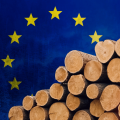 EU: Palm oil lobbyists allegedly are trying to “undo” deforestation law, incl. granting “smallholder” exemptions, raising concerns for Indonesian rainforests
EU: Palm oil lobbyists allegedly are trying to “undo” deforestation law, incl. granting “smallholder” exemptions, raising concerns for Indonesian rainforests
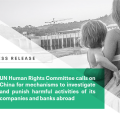 Press Release – CICDHA: UN Human Rights Committee calls on China for mechanisms to investigate and punish harmful activities of its companies and banks abroad
Press Release – CICDHA: UN Human Rights Committee calls on China for mechanisms to investigate and punish harmful activities of its companies and banks abroad
 New publication: Promise, divide, intimidate, and coerce: Tactics palm oil companies use to grab community lands. Summary Edition
New publication: Promise, divide, intimidate, and coerce: Tactics palm oil companies use to grab community lands. Summary Edition
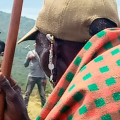 Call to Sever Ties with Tanzanian Government Over Latest Human Rights Abuses Against the Maasai
Call to Sever Ties with Tanzanian Government Over Latest Human Rights Abuses Against the Maasai

A decade of displacement: How Uganda’s Oil refinery victims are dying before realizing justice as EACOP secures financial backing to further significant environmental harm.

Carbon Markets Are Not the Solution: The Failed Relaunch of Emission Trading and the Clean Development Mechanism

Govt launches Central Account for Busuulu to protect tenants from evictions

Top 10 agribusiness giants: corporate concentration in food & farming in 2025

Uganda’s top Lands Ministry official has been arrested and charged with Corruption and Abuse of Office, a significant event that will have far-reaching implications for land governance in the country.

A decade of displacement: How Uganda’s Oil refinery victims are dying before realizing justice as EACOP secures financial backing to further significant environmental harm.

Govt launches Central Account for Busuulu to protect tenants from evictions

Environmentalists raise red flags over plan to expand oil palm fields in Kalangala

Innovative Finance from Canada projects positive impact on local communities.
Over 5000 Indigenous Communities evicted in Kiryandongo District
Petition To Land Inquiry Commission Over Human Rights In Kiryandongo District
Invisible victims of Uganda Land Grabs
Resource Center
- LAND GRABS AT GUNPOINT REPORT IN KIRYANDONGO DISTRICT
- RESEARCH BRIEF -TOURISM POTENTIAL OF GREATER MASAKA -MARCH 2025
- The Mouila Declaration of the Informal Alliance against the Expansion of Industrial Monocultures
- FORCED LAND EVICTIONS IN UGANDA TRENDS RIGHTS OF DEFENDERS IMPACT AND CALL FOR ACTION
- 12 KEY DEMANDS FROM CSOS TO WORLD LEADERS AT THE OPENING OF COP16 IN SAUDI ARABIA
- PRESENDIANTIAL DIRECTIVE BANNING ALL LAND EVICTIONS IN UGANDA
- FROM LAND GRABBERS TO CARBON COWBOYS A NEW SCRAMBLE FOR COMMUNITY LANDS TAKES OFF
- African Faith Leaders Demand Reparations From The Gates Foundation.
Legal Framework
READ BY CATEGORY
Newsletter
Trending
-

 MEDIA FOR CHANGE NETWORK1 week ago
MEDIA FOR CHANGE NETWORK1 week agoA decade of displacement: How Uganda’s Oil refinery victims are dying before realizing justice as EACOP secures financial backing to further significant environmental harm.
-

 MEDIA FOR CHANGE NETWORK1 week ago
MEDIA FOR CHANGE NETWORK1 week agoGovt launches Central Account for Busuulu to protect tenants from evictions
-

 WITNESS RADIO MILESTONES2 weeks ago
WITNESS RADIO MILESTONES2 weeks agoTop 10 agribusiness giants: corporate concentration in food & farming in 2025
-

 MEDIA FOR CHANGE NETWORK1 week ago
MEDIA FOR CHANGE NETWORK1 week agoCarbon Markets Are Not the Solution: The Failed Relaunch of Emission Trading and the Clean Development Mechanism

